The Legislative Yuan today passed a bill that would allow more civil servants to take unpaid leave to care for grandchildren, as well as ease restrictions on the appointment of dispatched personnel, or “temporary limited employees.”
Lawmakers passed a supplementary resolution related to Article 28-1 of the Civil Service Employment Act (公務人員任用法) instructing the Ministry of Civil Service to relax eligibility for civil servants to apply for unpaid “grandparental leave.”
On June 5, the Legislative Yuan’s Judiciary and Organic Laws and Statutes Committee examined the proposed changes to the act, including a grandparental leave clause.
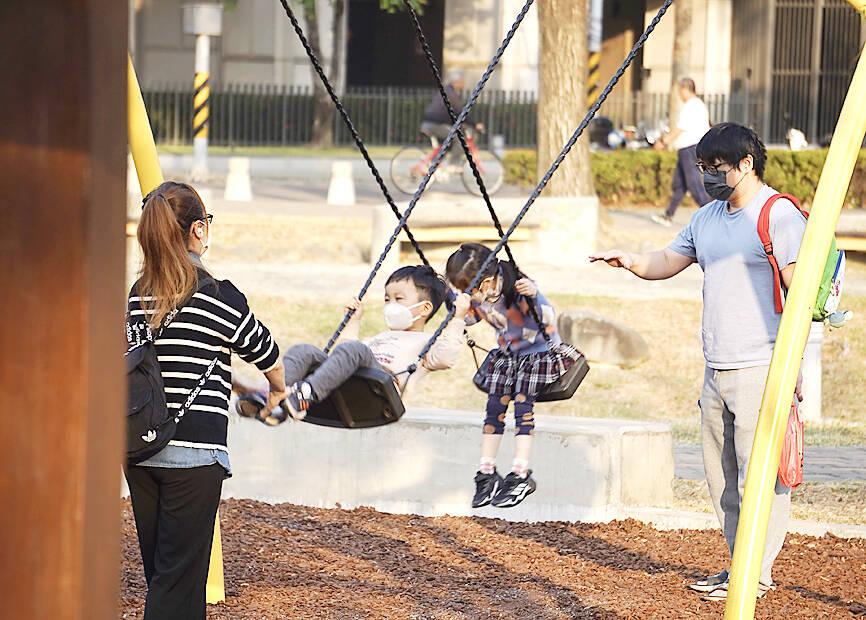
Photo: CNA
Due to ongoing controversy surrounding grandparental leave, the ruling and opposition parties agreed not to revise the legal text itself, but passed a supplementary resolution requesting the ministry to revise relevant provisions in the Regulations on Unpaid Leave for Civil Servants (公務人員留職停薪辦法) within three months.
The ministry was also requested to publicize the right of civil servants to apply for unpaid leave to care for grandchildren.
The amendments were proposed to relieve the burden on families with children and make civil servants more inclined to have children, Weng said.
The ministry said that guidelines currently state that civil servants can take leave to care for children under three years of age, which already allows grandparents to make use of the policy.
It suggested revising regulations on unpaid leave based on legislators’ proposals.
A separate change to Article 36-1 of the act passed today allows “temporary limited employees” who do not meet rank and qualification requirements to continue to be employed after the repeal of an act that used to govern such workers.
The rule applies to those working within the same central third-level agency and its subordinate bodies, or within a first-level agency under a special municipality government and its subordinate agencies.
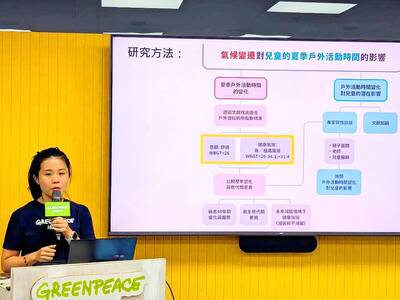
The government should improve children’s outdoor spaces and accelerate carbon reduction programs, as the risk of heat-related injury due to high summer temperatures rises each year, Greenpeace told a news conference yesterday. Greenpeace examined summer temperatures in Taipei, New Taipei City, Taoyuan, Hsinchu City, Taichung, Tainan and Kaohsiung to determine the effects of high temperatures and climate change on children’s outdoor activities, citing data garnered by China Medical University, which defines a wet-bulb globe temperature (WBGT) of 29°C or higher as posing the risk of heat-related injury. According to the Central Weather Administration, WBGT, commonly referred to as the heat index, estimates
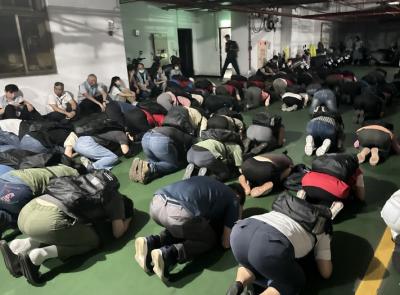
Taipei and other northern cities are to host air-raid drills from 1:30pm to 2pm tomorrow as part of urban resilience drills held alongside the Han Kuang exercises, Taiwan’s largest annual military exercises. Taipei, New Taipei City, Keelung, Taoyuan, Yilan County, Hsinchu City and Hsinchu County are to hold the annual Wanan air defense exercise tomorrow, following similar drills held in central and southern Taiwan yesterday and today respectively. The Taipei Mass Rapid Transit (MRT) and Maokong Gondola are to run as usual, although stations and passenger parking lots would have an “entry only, no exit” policy once air raid sirens sound, Taipei
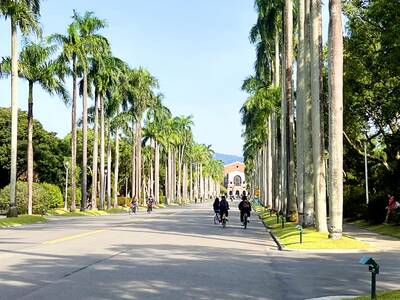
Taipei placed 14th in the Quacquarelli Symonds (QS) Best Student Cities 2026 list, its highest ever, according to results released yesterday. With an overall score of 89.1, the city climbed 12 places from the previous year, surpassing its previous best ranking of 17th in 2019. Taipei is “one of Asia’s leading higher-education hubs,” with strong employer activity scores and students “enjoying their experience of the city and often keen to stay after graduation,” a QS staff writer said. In addition to Taipei, Hsinchu (71st), Tainan (92nd), Taichung (113th) and Taoyuan (130th) also made QS’ list of the top 150 student cities. Hsinchu showed the
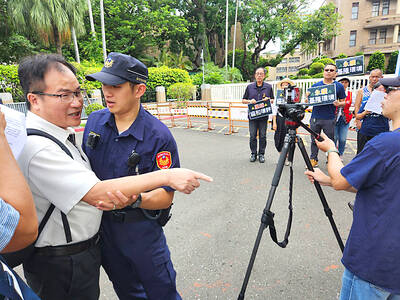
Environmental groups yesterday filed an appeal with the Executive Yuan, seeking to revoke the environmental impact assessment (EIA) conditionally approved in February for the Hsieh-ho Power Plant’s planned fourth liquefied natural gas (LNG) receiving station off the coast of Keelung. The appeal was filed jointly by the Protect Waimushan Seashore Action Group, the Wild at Heart Legal Defense Association and the Keelung City Taiwan Head Cultural Association, which together held a news conference outside the Executive Yuan in Taipei. Explaining the reasons for the appeal, Wang Hsing-chih (王醒之) of the Protect Waimushan Seashore Action Group said that the EIA failed to address